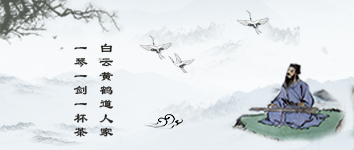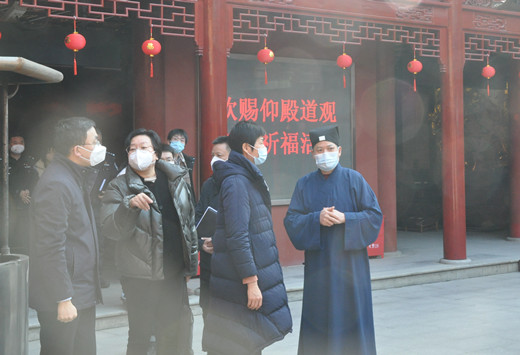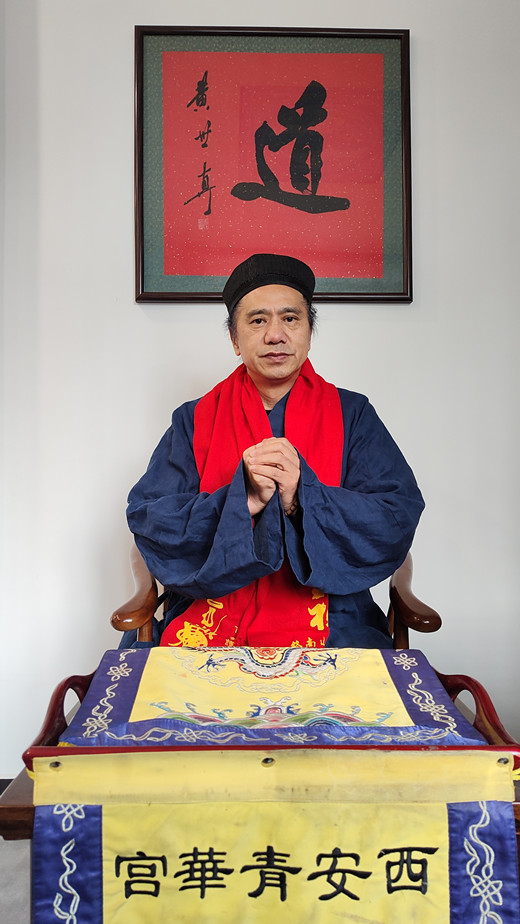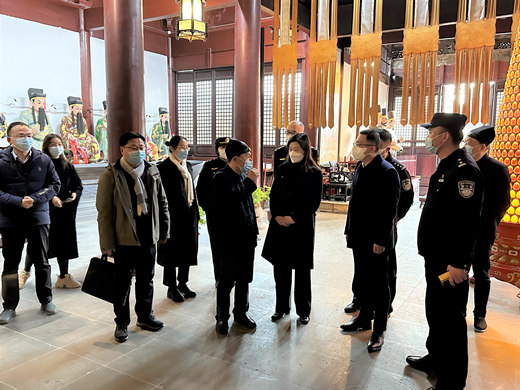中国人的时代与中国文化之《道德经》The Times of the Chinese People and “The Da
黄信阳博客陈峰
2010-12-17
中国人的时代与中国文化之《道德经》
The Times of the Chinese People and “The Dao De Jing of Chinese Culture
- 陈峰董事长“国际道德经论坛”讲话稿
Speech at “International Forum on the Dao De Jing” by Chen Feng, Chairman HNA
一、 中华文化的悠远与深邃
I. The long-standing and deep Chinese culture
中华文化源远流长,博大精深。儒、释、道是撑起中华传统文化大厦的三大支柱。儒家治世,道家治身,佛家治心;儒家入世,道家隐世,佛家出世。三家虽各有所重而相径庭,但能融合贯通,相济相补,构成彼此共存共荣的文化格局,千百年来对中国社会发展的方方面面产生了巨大而深刻的影响。中国历史上最鼎盛强大的时期,无一不是综合运用儒释道文化的结果——东汉“文景之治”,内用黄老,外示儒术;盛唐“贞观之治”,以儒为本,参以道法;清朝“康雍乾盛世”,内用禅佛,外示儒学。
China has a long-standing, broad and profound traditional culture, with Confucianism, Buddhism and Taoism as the three mainstreams. Confucianism initiates to govern the country, Taoism the human beings, and Buddhism the hearts, manifesting in that Confucianism goes into the society, Taoism secludes from the society, and Buddhism renounces the world. Though they totally differs from each other with their own cores, the three cultural streams manage to compromise and complement one another perfectly, therefore composing such a cultural pattern as co-existence and common prosperity, which shone a massive and profound influence on all aspects of the social development of China over thousands of years. Throughout the Chinese history, all the most Flourishing heydays attributed the success to a comprehensive application of Confucianism, Buddhism and Taoism, examples in case are: “Wenjing Administration” in the East Han Dynasty applied the Way of the emperor Huang and Lao Tzu interiorly and Confucianism externally; “Zhenguan Administration” in prosperous Tang Dynasty made Confucianism as the principal and Taoism as the assistant; and “heyday of Kangxi, Yongzheng and Qianlong Administration” applied the Way of Buddhism interiorly and Confucianism externally.
对于儒释道三家,国学大师南怀谨先生有个生动比喻:儒家像粮店,天天要吃,不可或缺;佛家像百货商店,有钱无钱的人都可以进去逛逛;而道家则像药店,不生病可以不必理会,生病了就非亲自登门不可。因为道家的思想,包括了兵家、纵横家的思想,乃至天文、地理、医药等等无所不包,所以当一个国家民族生病时,就非去这个药店不可。纵观中国两千年的封建帝王史,每逢变乱时期,拨乱反正,都属道家思想之功;天下太平了,则用孔孟儒家的思想。可见,在很大程度上,中国传统文化的根,表面上是儒学,而骨子里是道家。
As to the three schools of Confucianism, Buddhism and Taoism, Mr. Nan Huaijin, master of the studies of Chinese national culture, has made a vivid metaphor like this: Confucianism is like a grain shop that is indispensable for daily life; Buddhism is like a department store where anyone, rich or poor, can go for a walk, while Taoism is like a drugstore that can be neglected when one is healthy, but must be visited in person when s/he is ill. The reason is, when a nation is “ill”, he has to turn to such an all-embracing Drugstore that includes the thoughts of military strategists in ancient China and Political Strategists (in the Warring State Period), as well as knowledge of astronomy, geography, and medicine and the like. Throughout the 20-decade feudalism history of China, it was Taoism that brought order out of chaos at every social upheaval time; and it was Confucianism in prevail in peace period. Thus we can tell that the root of Chinese traditional culture shows Confucianism in appearance while Taoism in actuality.
《道德经》作为道家文化的经典之作,以深邃的智慧,诗一般的语言,探讨了宇宙形成、自然规律、治国修身等一系列重要问题。尤其是把自然规律看成是宇宙万物和人类世界的最高法则,认为人与自然的和谐比人与人的和谐还要崇高,为解决当前人类面临的一些问题提供了无穷的启迪。
As the classic works of Taoism, “the Dao De Jing” explored, with profound wisdom and in poem words, such a series of key issues as the formation of the universe, natural laws, management of state affairs and the cultivation of one’s morality. In particular, it held natural law as the tiptop law of everything and human being within the universe, it held that the harmony between man and nature even loftier than that between persons, which offers limitless enlightenment to problems that human beings are facing.
二、 现代文明的繁荣与困惑
II. The prosperity and perplexity of modern civilization
一百多年以前,西方文化迅速崛起——达尔文的《进化论》、凯恩斯的经济学、马克思的《资本论》思想影响和改变了整个世界,创造了现代文明的无比繁荣。西方文化的核心是竞争,适者生存。竞争带来了科学技术和商品经济爆炸性的发展。这种前所未有的物质文明极大地满足了人类的物质需求、改善了人类的生存条件、扩展了人类的见识视野。
The western culture rose sharply more than a century ago, e.g., such deep thoughts as “Evolutionism” advanced by Darwin, Economics of Keynes, and “Capital” by Marx has influenced and changed the whole world by creating an incomparable prosperity of modern civilization. The core of western culture is competition, i.e., survival of the fittest. Such competition brought an explosive development of science and technology and commodity economy, resulting in an unprecedented material civilization that satisfied substance needs of mankind to the maximum extent, and improved their living condition and extended their knowledge and horizon.
但是,飞速发展的科学技术更像一把“双刃剑”,一方面为创造人类的幸福提供了无比强大的动力;另一方面使人类掌握了可以毁灭地球上一切生命的能力。现代文明产生的负面效应越来越明显——爱滋病等新的世纪绝症出现,并日渐流行;严重的环境污染带来生态失衡、资源能源危机一触即发、自然灾害频繁发生、人口爆炸、社会老龄化;市场经济下,生存竞争压力日益激烈,失业人数剧增;面临知识信息爆炸时代,人们生活与工作节奏加快,身心过度紧张疲劳;出现信仰危机,人们普遍心灵空虚,迷失方向等等。人与自然、社会及自身心灵的关系已经如同强弩之末,处于危险的边缘。
Every coin has two sides, so does the science and technology; it renders mankind the ability to destroy all lives on the earth as well as the mighty power to create welfare. The negative effect of modern civilization is increasingly evident: new incurable diseases in this century like AIDs become epidemic; severe environmental pollution has destroyed the ecological balance, accompanied by the resource and energy on the breakout verge, frequent occurrence of natural disasters, population explosion and aging society; under market-oriented economy, the competitive pressure of living is increasingly fierce manifesting in the increase of unemployment; facing the explosion age of knowledge information, people is overwhelmed by excess physical and mental fatigue due to the fast tempo both in life and work; The regional crisis makes people tortured by heart blank and disorientation, and so on. The relations between mankind and nature, society, and their own souls are just like an arrow at the end of its flight, being on the touch of danger.

- 美好生活,智慧生命——简论江南娱乐在线登录账号 对人们生活启
- 浅谈《道德经》对心灵意识领域的探索经验
- 试论“法自然”的道家德育思想
- 江南娱乐在线登录账号 占卜文化
- 江南娱乐在线登录账号 的信仰及教理教义
猜你喜欢

 |
|










 京公网安备 11010202006208号
京公网安备 11010202006208号